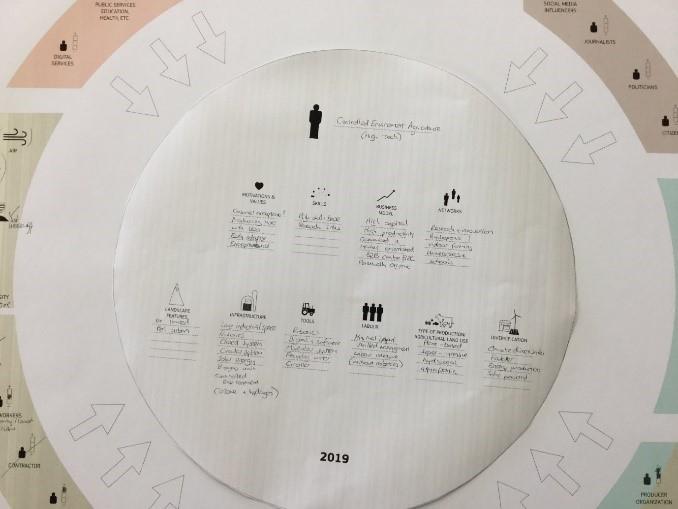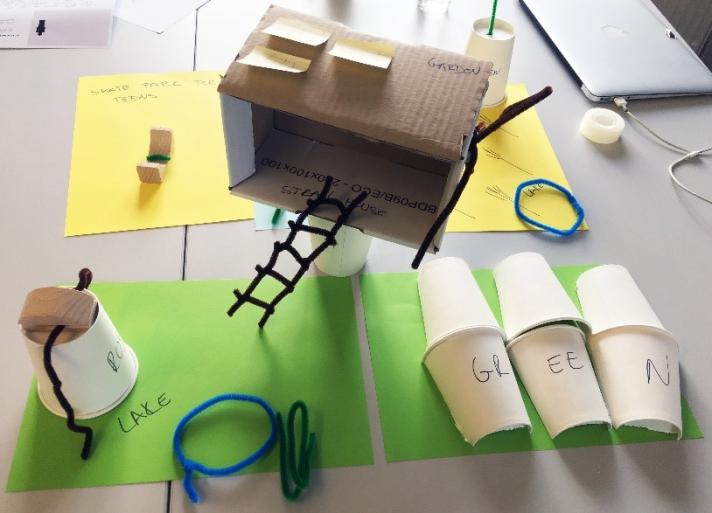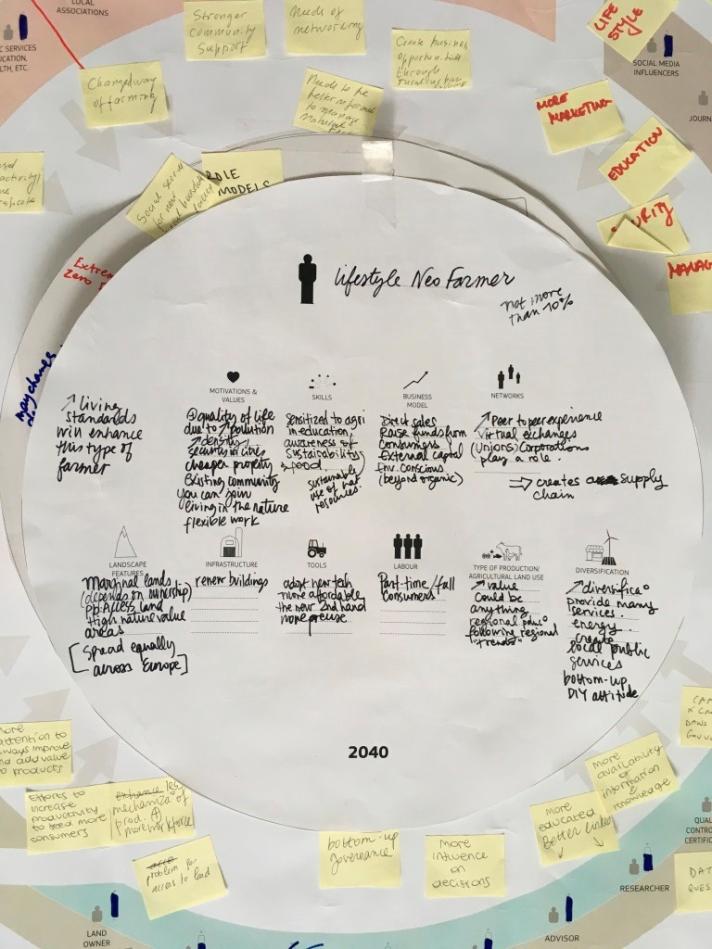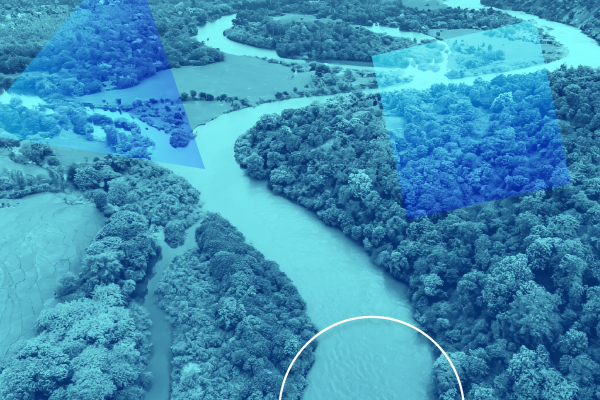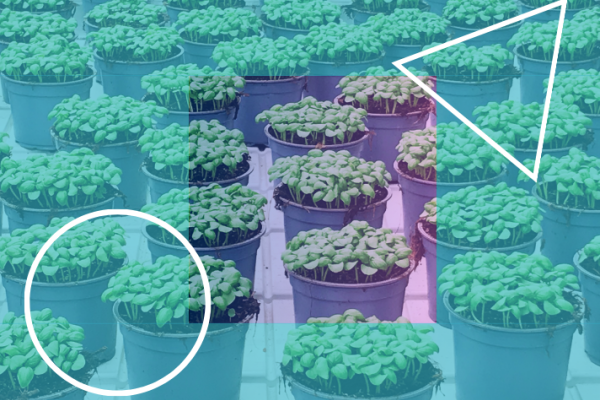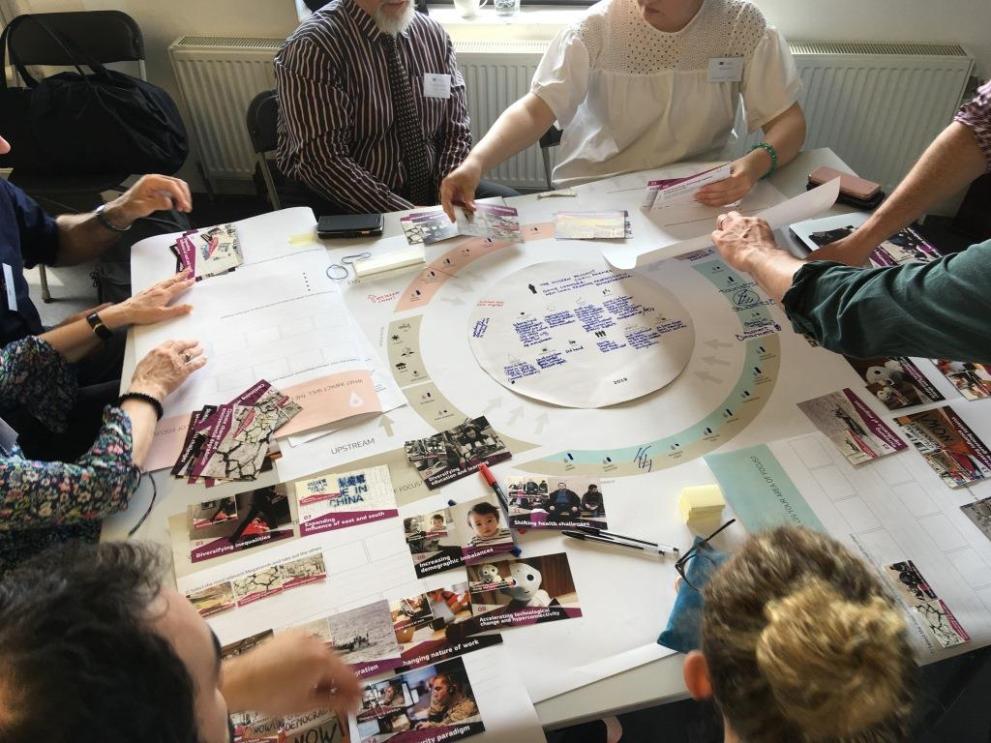
On the 18th & 19th of June a 2-day workshop took place, initiating the exploration of the Farmers of the Future. The purpose of the participatory workshop was to discuss future trends and their impacts towards 2040 regarding farmers’ professional and social roles. The workshop gathered about 50 European experts and stakeholders from the agricultural sector, in particular farmers, as well as from industry, academia, civil society and the European Commission to bring a broad range of perspectives to the table.
The workshop, employing a combination of foresight and design approaches, consisted of three steps that built upon each other: selecting and enriching farmer profiles, applying megatrends and envisioning farmers in 2040.
Selecting and enriching farmer profiles
The starting point for discussions were 12 farmer profiles developed by the Policy Lab for this foresight study. The 12 prototypical profiles aim at capturing the diversity of current farmers and farming activities in terms of objectives and motivations and business models applied. Besides six established farmer profiles, i.e. representing well-known forms of farming contexts, six emerging profiles were developed, reflecting more recent developments or current niche forms of farming.
For practical reasons only six of the profiles could be explored at the workshop. Participants, through voting, selected the ones marked in green, i.e. three established and three emerging profiles.
After the selection, the first task was to better define the farmer and the farm in a general way in terms of e.g. motivations, skills, networks, infrastructure, tools, diversification, capturing the range of possibilities without detailing e.g. a specific product portfolio. Also a name for the profile had to be found.
The results of the discussions were noted on circular templates, which then were revealed to be the centrepieces of larger maps depicting actors of the professional, societal and local environment of the farmer, and the physical environment. To tailor the general maps to the specific farmers’ profiles, participants were invited to assess the actors according to their relevance for the profile in question, and to add any missing ones.
Applying Megatrends
After detailing the profiles of established and emerging farmers, the group explored their future. For this step, 14 global Megatrends, developed by the Policy Lab in collaboration with experts, were used. The Megatrends were not developed having agriculture in mind, but all of them will have direct (e.g. climate change and environmental degradation) or more indirect (e.g. increasing influence of new governing systems) implications for agriculture and the context in which farmers live and work. All 14 Megatrends are based on a broad collection of data and information, publicly accessible online (https://ec.europa.eu/knowledge4policy/foresight/about_en ).
Participants then answered the question ‘What influence will the Megatrends have on the farmer profiles towards 2040?’ The most relevant Megatrends were selected and their different implications for the farmers’ environment noted. This was done by looking separately at the upstream and downstream sectors, the local and societal environment, and the physical factors, and translating these implications into how the different parts of the farmers’ environment would have changed in 2040.
Participants then answered the question ‘What influence will the Megatrends have on the farmer profiles towards 2040?’ The most relevant Megatrends were selected and their different implications for the farmers’ environment noted. This was done by looking separately at the upstream and downstream sectors, the local and societal environment, and the physical factors, and translating these implications into how the different parts of the farmers’ environment would have changed in 2040.
Envisioning farmers in 2040
The changed environment in 2040, a result of the implications of the Megatrends, had to be ‘translated’ into a coherent image of the farmer in 2040. For this a 2040 version of the centrepiece was created by the participants, looking at the same characteristics as before such as motivations and values, skills, and possible changes in comparison with 2019. In addition, participants developed for each farmer profile a persona, a specific farmer and farm with name, age, location, size, products etc., representing one possible example for the 2040 farmer profile, and described a day in the life of this persona in 2040. The building of a 3D model of a specific aspect of the 2040 farmer profile with different materials, complemented the envisioning of the 2040 farmers.
Preliminary outcomes and follow-up
From the workshop a couple of points already stand out. Sustainability and circularity were identified as common and important drivers. Based on the discussions and the changes that would characterise the farmer in 2040, there are specific challenges that every farmer in each situation could face.
- For farmers that work in an adaptive way: as the pace of changes and adaptation needs gets faster and the various network more fluid and diverse, what will be the stable elements in the future of this type of activity?
- For farmers more focused on intensive/production focused specialisation: as the assets become more diverse and fragmented in the future (land ownership, capital, natural resources) is growth and expansion the most viable strategy for such farming?
- For farmers following a regenerative approach: as all the other farming systems adapt more sustainable practices, what will be the new frontiers and the distinguishing features of regenerative farming in 2040?
- For the corporate farmer: as corporations become bigger, more powerful but also and more complex, how can they reshape agriculture and rural areas?
- For the lifestyle/neo-rural farmer: as the local environment becomes more diverse and the nature of work changes, will these farmers, already mobile, manage to create and sustain vibrant rural communities?
- For farming in a controlled environment: how will these systems co-evolve with the future of cities?
Furthermore, some more general, though preliminary, elements emerged:
- Farmers are already adapting, there can be more or less disruptions depending on paths or situations.
- Several types of farming are expected to co-exist in the future and the profiles that were presented and selected appeared relevant.
- Farmers of the future need to be entrepreneurs, some might be employees of big corporates, and contracting could further develop
- Family farming is expected to still exist in the future, but broader partnerships amongst shareholders are considered likely to develop.
- In all cases, farmers need to be good managers of (human, financial and natural) resources, be skilled, innovative, resilient and connected.
In the follow-up, the rich harvest of the workshop for six farmer profiles will be complemented with smaller working groups to tackle the remaining six profiles. In addition several farm visits as well as small farmer workshops in some selected Member States will be carried out to gather more insights on future perspectives and visions and feedback. Furthermore, the results will be used to develop an engagement tool to discuss with stakeholders policy implications of the possible trajectories to 2040.
Details
- Publication date
- 12 November 2019
- Author
- Joint Research Centre
- EU Policy Lab tags

